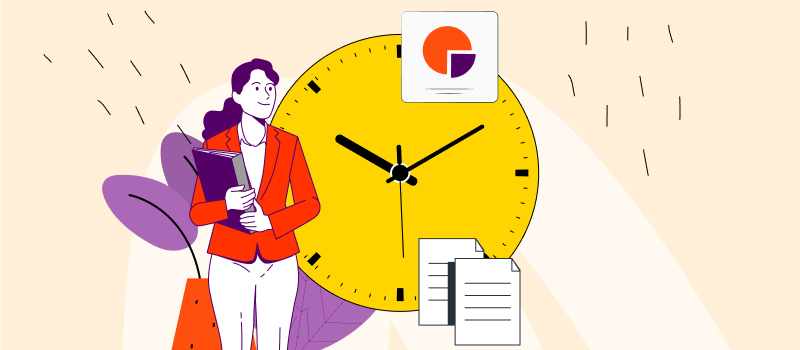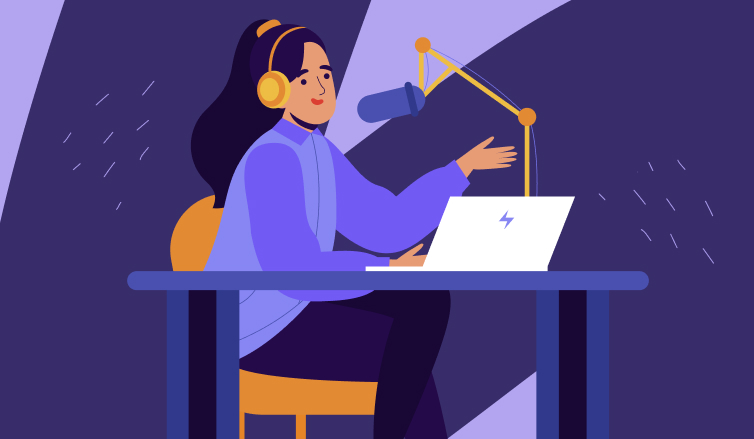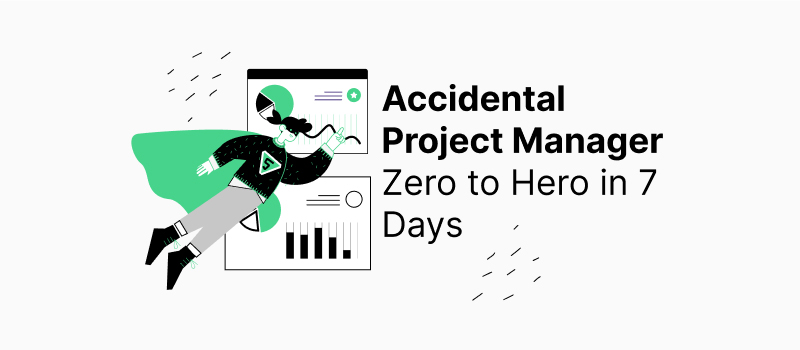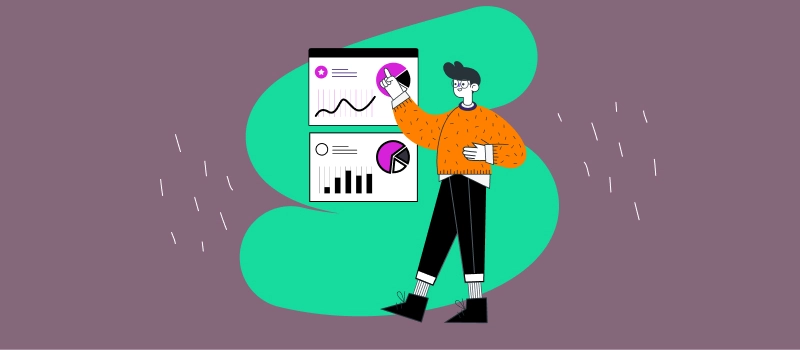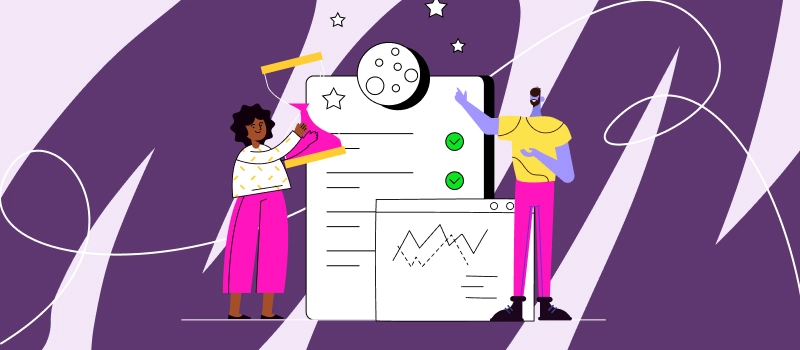
Are you an early riser or a night owl? It’s the age-old question that has plagued productive professionals since the beginning of time – does it pay off to get up and at ’em first thing in the morning or is late-night productivity more beneficial for success?
The answer isn’t so cut and dry, as it often depends on your personal chronotype. For better time management, understanding how you manage your energy throughout different parts of the day can be useful for developing strategies that let you make those hours count!
Here, we’ll explore the major chronotypes and the qualities they usually show. Plus, we’ll share some valuable time management tips that will help morning larks and night owls take the most out of their day.
What’s Your Chronotype? Larks vs. Owls
Chronotypes are the innate differences in our biological clocks that define our preference for a particular sleep and wake-up pattern. Simply put, chronotypes dictate whether you are a morning lark or a night owl.
Morning larks, also known as early birds, have a tendency to wake up very early in the morning, feel fit right after waking up, and are most productive during the first half of the day. Contrarily, night owls tend to stay awake in the late hours of the night, feel tired after waking up, and are often most productive during the afternoon or evening hours (Source).
These two chronotypes differ in their biological clocks, which determine how well they function during a specific part of the day and influence their entire lifestyle. For example, early birds live in sync with a society that has a 9 to 5 schedule, whereas night owls usually find this schedule not well suited, lagging behind and feeling tired in the mornings.
Every individual falls somewhere on the lark-owl spectrum – some closer to one of its edges or another). Besides, one’s chronotype may easily change with age. But in either case, being aware of your biological clock and tailoring your activities to match your chronotype will not only boost your productivity but also improve your overall well-being.
Morning Larks vs. Night Owls: What Does Data Reveal?
-
Larks are not more successful than owls.
Benjamin Franklin once said: “Early to bed and early to rise makes a man healthy, wealthy, and wise.” However, research doesn’t prove that larks live better than people who wake up later during the day. In fact, night owls in this study had a higher mean income than early birds and were more likely to have access to a car.
-
Night owls may be more intelligent than larks.
After exploring the correlation between one’s intelligence and chronotype, this study revealed that evening persons tend to have better memory, as well as higher processing speed in cognitive tasks, and may be smarter than early birds overall.
-
Night owls are more prone to substance abuse.
Evening persons whose personal schedules are poorly adjusted to their circadian rhythms – who have to wake up early after going to bed late – often experience social jetlag, a condition associated with an increased intake of alcohol, caffeine, and tobacco.
-
Morning larks are more conscientious and agreeable.
This study with 1231 participants revealed that morningness is linked to such personal qualities as agreeableness and conscientiousness regardless of age and gender. Eventually, this could make early birds much better team players than night owls.
-
Night owls procrastinate more.
According to this study, morning persons have no problem with avoidant procrastination as compared to night owls. In other words, they rarely postpone unpleasant, boring, or dreaded tasks for later. However, when it comes to decisional procrastination, larks are no better than owls.
Another Take on Chronotypes: Lion, Bear, Wolf & Dolphin
While the lark vs. owl dichotomy is the most commonly known, an emerging theory suggests that there are four distinct chronotypes that people can fall into: Lion, Bear, Wolf, and Dolphin.
These chronotypes aren’t just amusing labels thrown around to make you feel special. They’re actually grounded in science, with research revealing that our individual preferences for sleep are linked to our genetic makeup, as well as other factors like age and sex.
Lion 🦁
Lion is the early bird who wakes up before the crack of dawn, feeling most energized early in the morning. They are the go-getters who take on the day head-on, fueled by their high morning cortisol levels and a potent shot of caffeine.
Meetings in the morning? Bring it on!
By mid-afternoon, the Lion’s energy levels start to dip, prompting them to tackle their most tedious tasks early on in the day before the sluggishness comes on.
Bear 🐻
Bears follow a natural sleep-wake cycle akin to our favorite cuddly mammals – they sleep as soon as the sun sets and wake up with the rooster. They are the typical office-going folk who thrive in the 9 to 5 culture, and their energy levels remain stable throughout the day.
Ideal for those endless back-to-back meetings, the Bear’s peak productivity hours lie mid-morning to early afternoon. But, beware, they won’t be too enthusiastic about those post-work drinks – the Bear’s bedtime inching ever closer.
Wolf 🐺
Wolves are the nocturnal animals among us, who are at their best during the late-night hours. They are the creative minds who find their “zone” during the wee hours of the morning, leaving their mundane tasks to tackle later.
While Wolf chronotypes have a challenging time waking up early, their energy levels surge in the evenings and even extend well past midnight. Naturally, their ideal work hours differ drastically from the traditional 9 to 5 work culture. So, don’t be surprised if you find your Wolf colleague working late into the night and going to bed only in the morning.
Dolphin 🐬
As elusive as the marine creature they are named after, the Dolphin chronotypes are light sleepers, perpetually battling insomnia. They are the brains that function well under pressure, known to be perfectionists and workaholics.
Dolphin types may have irregular sleep patterns, often waking up in the middle of the night, leading to a daytime sleep deficit. Their energy levels are low until late morning, and they perform well in spurts, requiring short breaks or naps to maximize their productivity.
| Lion | Bear | Wolf | Dolphin | |
| Thrives in the 9 to 5 work culture | ||||
| Requires a flexible work schedule | ||||
| Does well at morning meetings | ||||
| Works better in the afternoon |
Chronotypes have significant impacts on both physical and mental health.
For instance, bears tend to have the most balanced sleep pattern and are, therefore, less likely to experience sleep-related disorders such as insomnia or sleep apnea. However, Wolves may be at a higher risk for depression and anxiety due to the mismatch between their natural sleep patterns and societal expectations.
This is why it’s so vital to embrace your natural sleep patterns and create a work schedule considering your peak productivity hours. Luckily, the below tips for time management will help you do just that.
5 Time Management Tips for Morning Persons
1. Make use of productivity tools
Even the most motivated and organized morning person can only do so much with their limited time before the rest of the world wakes up. But by using productivity tools like task managers, note-taking apps, and time tracking software, you can maximize every minute of your early-morning solo time and get done more than ever before.
- Focus@Will: Do you find it hard to concentrate amid distractions like social media notifications, chatty co-workers, or noisy surroundings? Focus@Will can help you regain your focus and boost productivity. It offers scientifically optimized music that is tailored to your personality type, tasks, and mood. With its unique blend of psychoacoustics and neuroscience, Focus@Will can make you feel more alert, relaxed, and engaged while you work.
- Superhuman: This is a premium-level email management platform for your cluttered inbox. With lightning-fast speed, intuitive keyboard shortcuts + advanced features like undo send and email snooze, this app is a game-changer for anyone who lives and breathes email communication.
- Time Management Assistant: This nifty and 100% free browser extension takes the hassle out of tracking your online activities by fully automating the process. Whether you’re working on a complex project or simply browsing the web, Time Management Assistant seamlessly records your time and categorizes your activities for convenient reference. So, wave goodbye to inefficiency and get ready to take your time management to a whole new level!

Click here to explore Time Management Assistant in greater depth. 👈
2. Create a focus-boosting morning routine
Larks’ natural tendency to wake up early means they already have a head start on the day. But by capitalizing on this extra time, they can set themselves up for success and improve their ability to complete tasks or engage in activities that require mental clarity and focus.
- Wake up at a consistent time: Our bodies crave consistency and this will help you establish a healthy circadian rhythm. Whether it’s 6 AM or 8 AM, find a time that works for you and stick to it.
- Hydrate: After 6-8 hours of sleep, our bodies are dehydrated and need to be replenished. Downing a glass of water within the first 30 minutes of waking up will jumpstart your metabolism, flush out toxins, and get your brain firing on all cylinders.
- Get moving: Studies show that exercising in the morning increases productivity, boosts creativity, and reduces stress. By adding just 15 minutes of exercise to your morning routine, you can set yourself up for a day full of focus. Whether you hit the gym, go for a run, or do some yoga, find an activity that gets your blood flowing and your body moving.
- Fuel up with the right breakfast: A nutritious breakfast is essential to fueling up for the day ahead. Choose foods that are high in protein and slow-burning carbs to keep you full and energized. Avoid sugary cereals and breakfast pastries that will leave you crashing mid-morning.
- Practice mindfulness: Spend a few minutes in quiet reflection, practicing deep breathing or meditation. This will help you center your thoughts and focus on the tasks ahead.
Click here to find more tips on how to make your mornings productive. 👈
3. Set daily goals
Setting daily goals helps you stay focused and motivated throughout the day. Rather than simply reacting to whatever tasks come their way, make a clear plan of action towards your goal. This way, you are more likely to stay on track and feel accomplished.
- Define what you want to achieve: Whether it’s finishing a project, hitting the gym, or learning a new skill, make sure it’s specific, achievable, and measurable. Setting clear goals will help you prioritize your time and motivate you to stay focused.
- Break your goals down into smaller, more manageable tasks: Think of it like chopping firewood, you wouldn’t try to do it all in one go. Instead, you’d take it one log at a time. The same goes for goal-setting. Break each goal into smaller tasks that you can realistically achieve each day.
- Plan out your day to prioritize your goals: Schedule your tasks in order of importance and make sure you leave enough time for each one. Remember, it’s better to focus on fewer tasks and do them well than to spread yourself too thin.
Learn how to set SMART goals here. 👈
4. Eat the frog first thing in the morning
The concept of eating the frog is based on the philosophy of tackling the most challenging or unpleasant task of the day first. By doing so, morning persons can ensure that they use their peak productivity hours in the best way possible and start their day with a sense of accomplishment, fueling their motivation and productivity for the remainder of the day.
- Identify your frog: What’s the one thing on your to-do list that makes you want to crawl back under the covers and never come out? That’s your frog. It might be a daunting project, a difficult conversation you’ve been putting off, or just a tedious task that you’ve been avoiding like the plague.
- Create a plan of attack: Break down your frog into a manageable series of tasks. Figure out what resources you need, when you’ll do each part, and how long each step will take. Having a clear plan in place can help ease some of the anxiety around getting started.
- Set a timer: Give yourself a set amount of time to work on your frog, whether it’s 15 minutes or a full hour. Knowing that there’s a definite end point can give you the momentum you need to get started.
- Eliminate distractions: Shut off your phone, close out your email, and lock the door if you have to. Make sure you’re creating a distraction-free zone where you can focus solely on your frog.
- Celebrate your victory: Once you’ve crossed your frog off your list, take a moment to bask in your accomplishment. Give yourself a pat on the back, treat yourself to a quick break, or reward yourself with a well-deserved snack. The point is to acknowledge that you did something difficult and to feel good about it.
Explore even more handy time management techniques here. 👈
5. Master time blocking
Time blocking is a simple but effective work scheduling method that requires you to divide your day into chunks of time and assign a single task or a series of similar activities to each block.
For example, you might block off 8-10 AM for working on a piece of code, 10-11 AM for team meetings, 12-13 PM for checking emails, and so on.
This allows you to create a clear structure and routine needed to stay focused and productive. Besides, by front-loading their day with high-priority items, larks can free up their afternoons for more low-effort, creative, or social activities, which aligns with their natural rhythm.
Read this post to find out more about time blocking and its benefits. 👈
5 Tips on Time Management for Evening Persons
1. Prep the night before
Waking up on time and being productive in the morning is a real struggle for every evening person. But prepping for the day the night before may just be the key to unlocking your inner morning lark (or at least, making the early hours slightly less dreadful).
By taking a proactive approach and planning ahead, you’ll feel more in charge of your day and may even experience a sense of accomplishment before it’s even begun.
- Consider the practicalities: Laying out your clothes, packing your bag, and preparing your breakfast ahead of time means one less thing to worry about in the morning rush.
- Schedule tasks: Jot down any appointments, deadlines, or to-dos that need to be taken care of. This way, you won’t wake up in a panic trying to remember everything you need to get done.
- Tidy up your workspace and living areas: A cluttered environment can lead to a cluttered mind, so take a few minutes to clean up your space before you settle down for the night. This will not only give you a clean slate to start your day with.
Check out this article for even more tips on how to be always productive. 👈
2. Schedule the most demanding tasks for later in the day
As we already mentioned before, it’s crucial to schedule your daily agenda around your personal peak performance hours, otherwise known as the “biological prime time.” And while for some, it’s the early bird who gets the worm, for others, it’s the owl who catches the prey.
By scheduling their most demanding tasks for later in the day, evening persons can exploit their body’s natural inclinations for boosted productivity and efficiency. In order to schedule these tasks, one can use just personal calendars or specialized work scheduling and time tracking tools.
actiTIME, for example, allows you to create multiple projects and tasks and then track time against them using a weekly timesheet, one-click timers in the mobile app, or a fully automated browser extension. On top of that, actiTIME features a handy Calendar View where you can schedule work for an entire week ahead.
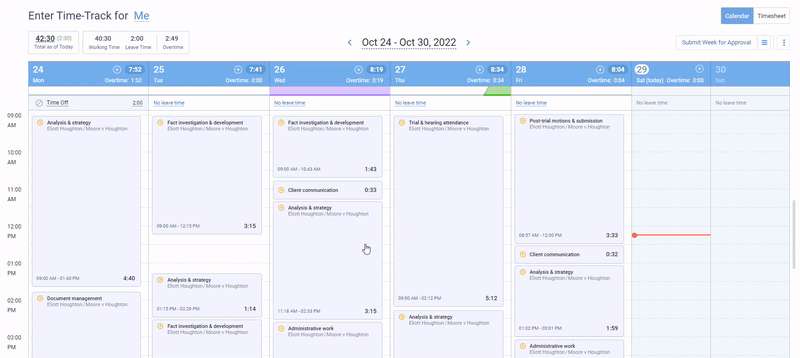
For more information about actiTIME’s Calendar View, feel free to check out this post. 👈
3. Take regular breaks
Burnout is a real threat when you stay up late but have to wake up early in the morning. So, if flextime is not an option for you as a night owl and you can’t adjust your personal schedule to match your chronotype, at least make sure to take regular breaks during the day. Brief pauses will help to keep your energy level and focus in check, which is crucial for better time management.
By going on a quick walk, doing some stretches, or just stepping away from your desk for a few minutes, you’re giving your brain a chance to recharge and reconcentrate. This, in turn, can help you make faster decisions when you get back to work.
Besides, you can try out the Pomodoro technique, a time management method that consists of breaking down work into intervals (about 25 minutes in length), separated by short breaks each. This technique will give you a clear framework to work within, and the regular breaks will help to relieve the mental strain of long hours.
Learn everything about the Pomodoro method and its benefits here. 👈
4. Eliminate distractions
Distractions can come in many forms – noise, clutter, hunger, or a sudden urge to check your email for the hundredth time. Eliminating them can help you reduce the risk of procrastination (which is higher for evening persons), stay focused, and stick to the task at hand, even when you’re burning the midnight oil.
- Be aware of temptations: Identify what distracts you the most and remove these things from your work environment. Disable social media notifications, close unnecessary tabs on your web browser, and keep your phone on silent or in another room.
- Avoid multitasking: Contrary to popular belief, attempting to juggle multiple tasks at once can actually slow you down and hinder your ability to concentrate. Instead, try focusing on one task at a time.
- Use distraction-blocking tools: These can come in the form of apps or browser extensions that block certain websites or apps for a set amount of time. Now, you won’t have to worry about accidentally sliding into social media’s entertaining black hole or getting sucked into a YouTube loop of cute animal videos.
Find your perfect distraction-blocking tool here. 👈
5. Prioritize your health
Evening persons may be more prone to sleep disorders like insomnia, which can further exacerbate multiple health problems. Chronic lack of sleep has been linked to increased risk of heart disease, diabetes, obesity, and even cancer. And let’s face it, you can’t be truly productive and efficient when you’re constantly sick, feeling weak, or having brain fog.
That’s why it’s crucial for evening persons to prioritize their health in order to manage their time and work better. This means exercising regularly, eating a balanced diet, and getting enough quality sleep.
These habits may seem like luxuries when there are deadlines to meet and to-do lists to conquer, but in the long run, they’ll make us better equipped to handle whatever challenges come our way.
Click here to learn how personal time off helps to improve employee productivity and well-being. 👈
The #1 Time Management Tip for Work
Whether you’re a night owl, an early bird, or something in between – time tracking offers the best way to identify when you’re most productive throughout the day. This knowledge is like gold dust for optimizing your work schedule and enhancing your overall performance.
- Time tracking shows where your time is going: It gives you a bird’s eye view of your daily activities, helping you identify tasks that suck up your precious time. This knowledge empowers you to prioritize your work, focus on activities that matter most, and create better habits that make the most efficient use of your time.
- Time tracking helps to estimate how long you spend on certain tasks: This makes it easier to plan your day, set realistic goals, and avoid overcommitting yourself. Think of it as a crystal ball that predicts how your day will unfold!
- A good time tracking tool simplifies workload management: It allows you to break down your tasks into manageable chunks and set realistic deadlines for yourself. This way, you avoid the dreaded feeling of overwhelm and can stay focused on the task at hand.
When it comes to time tracking convenience and efficiency, nothing beats actiTIME!
Not only does it support several time tracking methods (because not everyone works the same way), but it also comes equipped with a handy project management functionality to keep you organized and on-task.
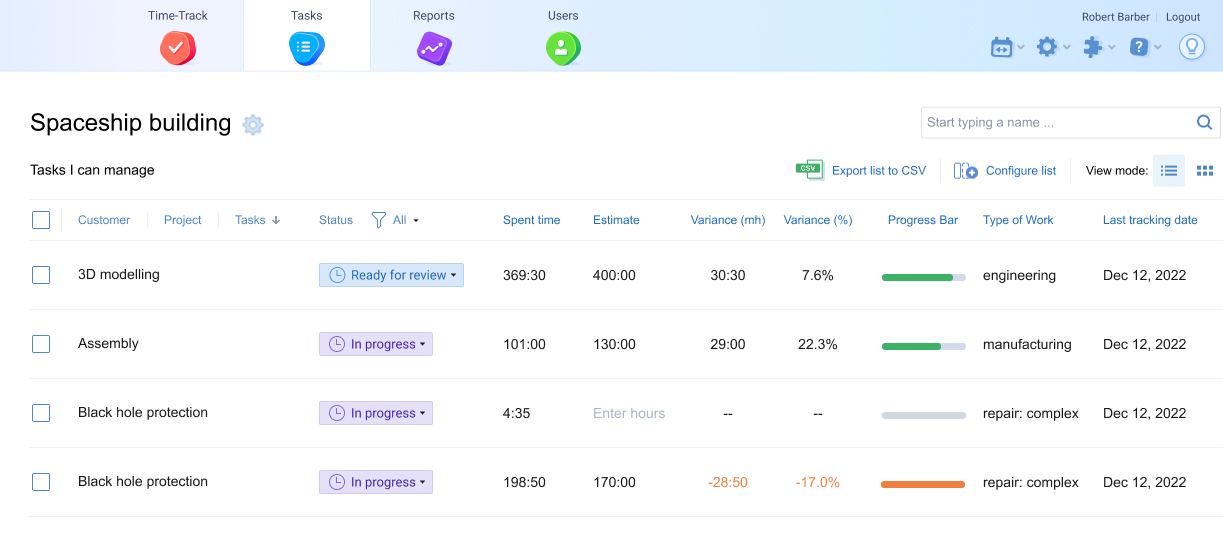
But the real magic happens with actiTIME’s automation. You can enjoy fully automated activity tracking via the browser extension, streamline time off accrual within your team, make super-accurate invoices in just a few clicks, and set up automated notifications to keep tabs on project estimates and budgets.
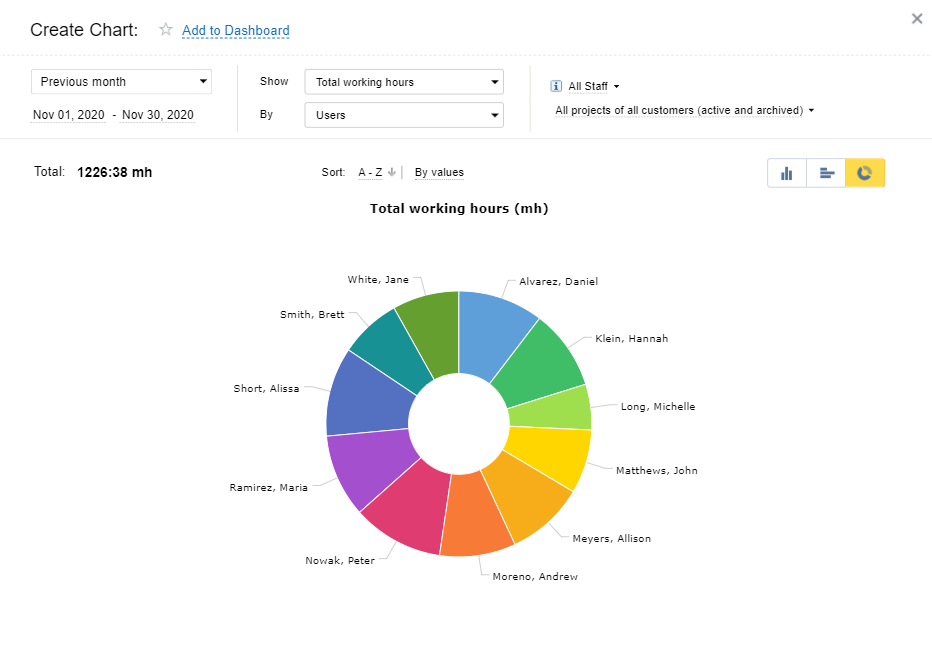
With the plethora of built-in reports, you’ll have all the data you need to analyze your own and your team’s productivity and make informed decisions. And don’t worry about breaking the bank – actiTIME is both affordable and offers a free version for small teams.
So, why settle for a mediocre time tracker when you can have one of the best? Try actiTIME today and watch your productivity soar.






































